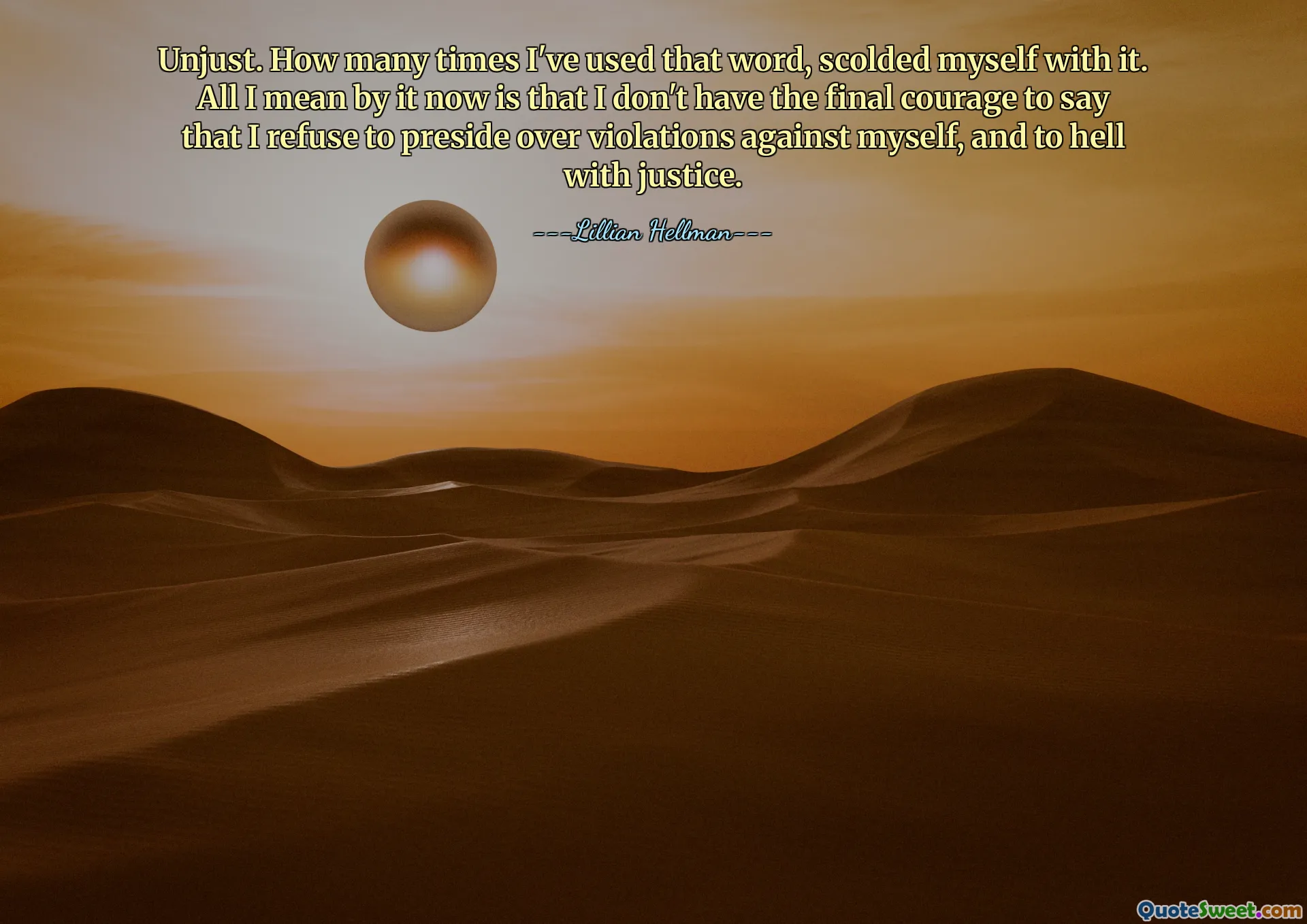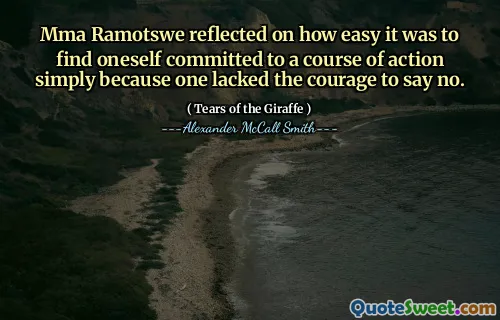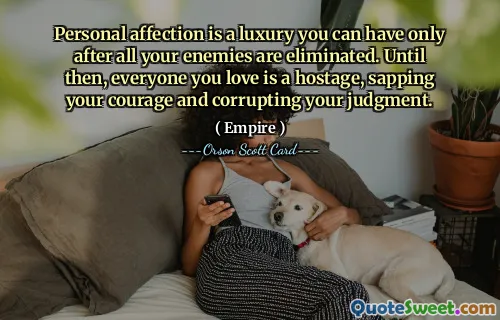
Unjust. How many times I've used that word, scolded myself with it. All I mean by it now is that I don't have the final courage to say that I refuse to preside over violations against myself, and to hell with justice.
This powerful quote delves into the complex and often painful relationship between justice and personal integrity. The speaker reflects on the word 'unjust,' which they've previously used to condemn external wrongdoings but now view with a more introspective lens. The admission that they lack the ultimate courage to outright refuse participation in actions that violate their own rights suggests a profound internal conflict. It highlights how, at times, individuals may tolerate injustice not due to ignorance or lack of awareness but because of fear, complacency, or a deeply rooted sense of helplessness. The phrase 'to hell with justice' reveals a rejection of traditional notions of fairness when one feels inadequate to challenge the system or circumstances encroaching upon their dignity. This sentiment resonates universally, exposing the vulnerability inherent in standing up for oneself amidst systemic or personal oppression. It prompts the reader to consider how often societal complicity, fear, and self-doubt hinder decisive action against injustices. Furthermore, it resonates with the idea that justice isn't always purely external; sometimes, it begins internally, with the acknowledgment of one's feelings of powerlessness and the courage required to confront them. The quote invites introspection on whether one can ever truly feel justified in resisting injustice without facing internal fears, and whether ultimately, personal acts of rebellion can ignite broader change. It underscores the importance of self-awareness and moral courage in the pursuit of both personal and societal justice, emphasizing that the journey toward righteousness often starts with individual acknowledgment and confrontation of internal fears.







